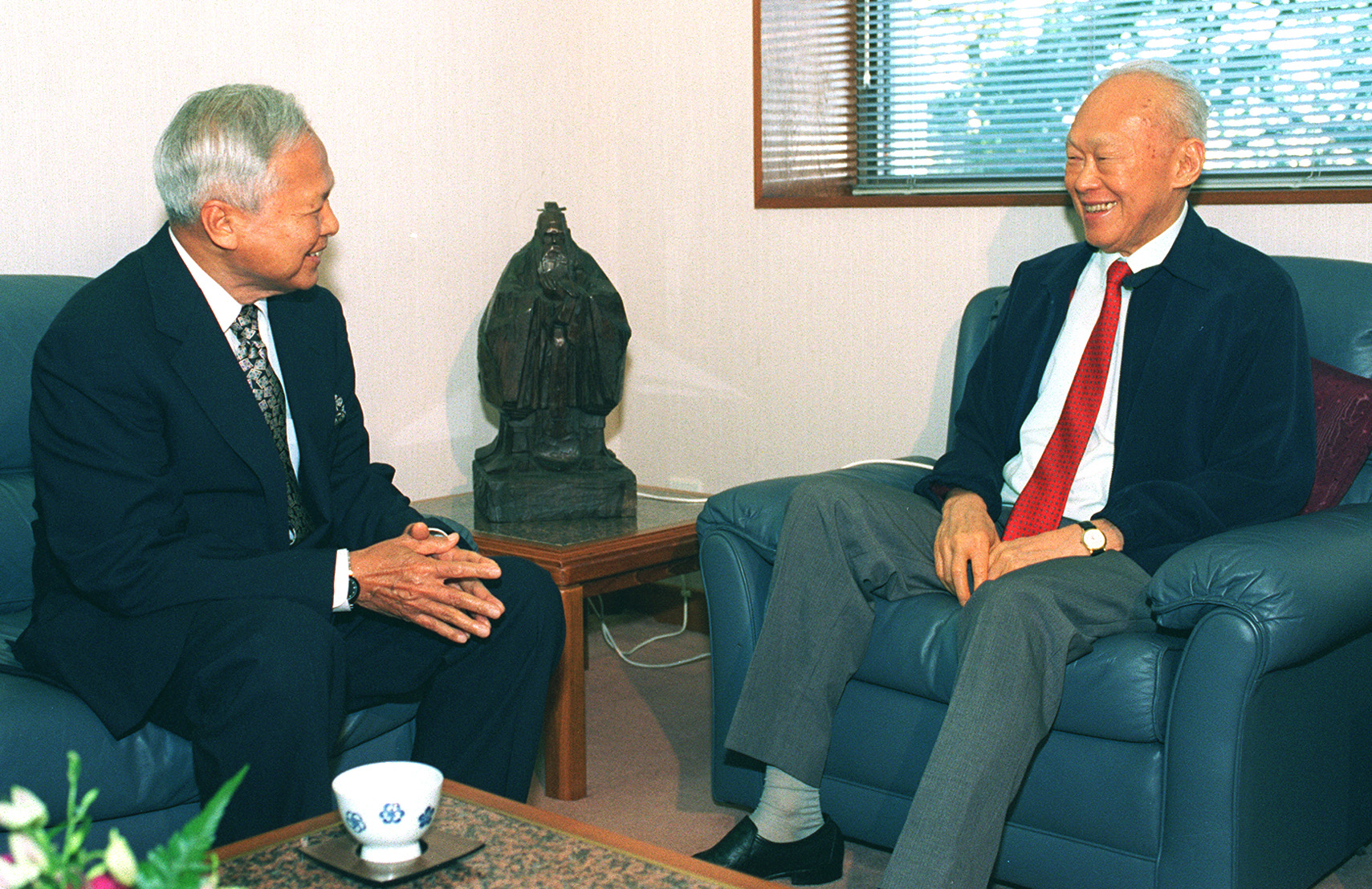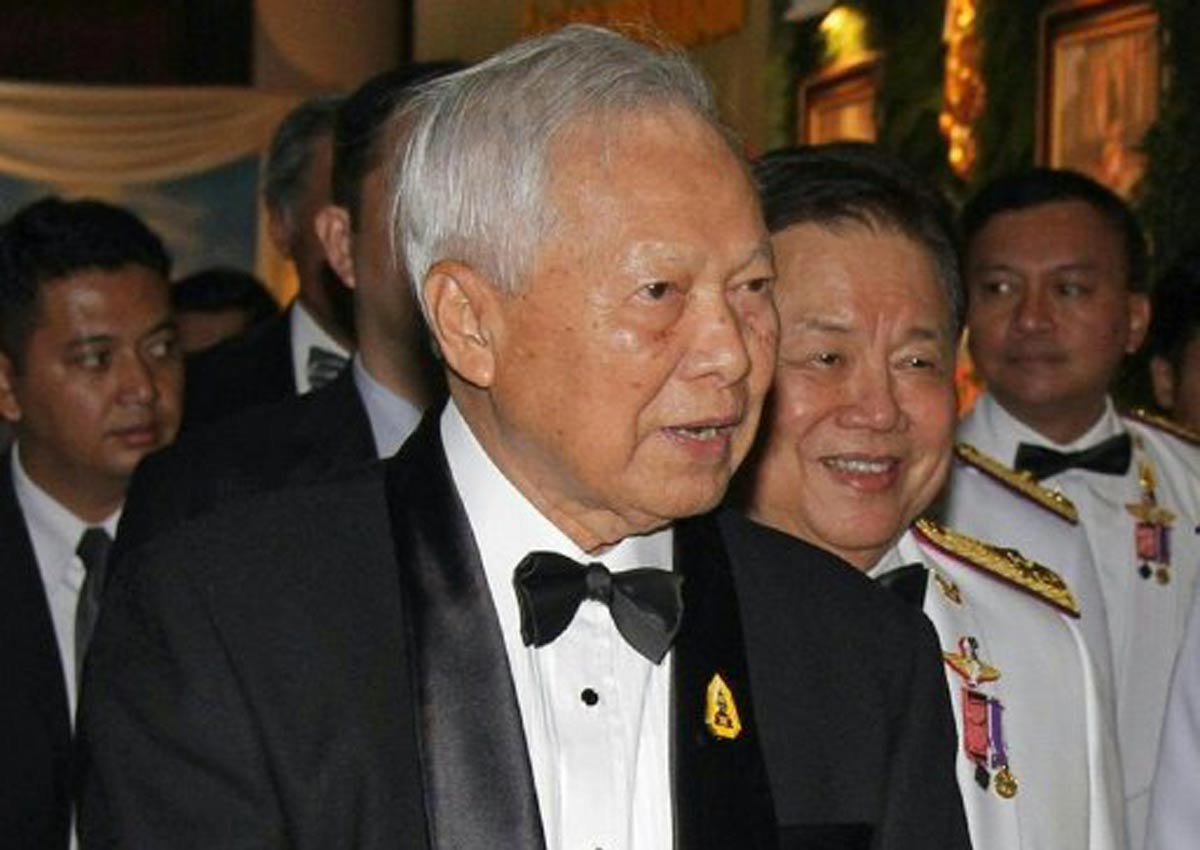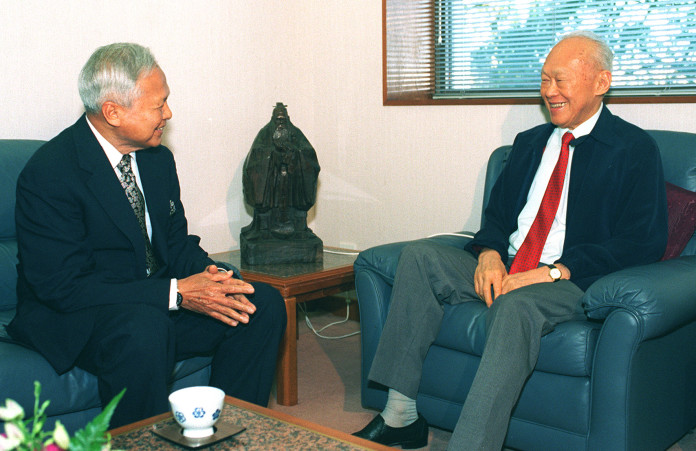Bangkok – A 96-year-old former general has become temporary regent after Thailand’s Crown Prince Maha Vajiralongkorn, in a surprise move, delayed his own proclamation as king following the death of his beloved father.
So who is the regent, Prem Tinsulanonda?
That may raise eyebrows outside Thailand but Prem is astonishingly spry, frequently attending royal engagements, delivering speeches and moving around without help.
His installation as temporary head of the revered and influential monarchy further cements his status as one of the shrewdest and most powerful players in the Machiavellian game of Thai politics.
Born in the southern province of Songkhla in 1920, he stormed up the army ranks during the Cold War and was promoted above his seniors to army chief in 1978.
Two years later, he assumed power in what was widely viewed as a silent coup endorsed by the king and queen.
His 1980-1988 spell as premier was a rare period of political and economic stability, contrasting with the tumultuous years of coups and counter-coups preceding it.
Prem later led the Privy Council of late King Bhumibol Adulyadej – who died last Thursday after a 70-year reign – making him the monarch’s closest adviser and gatekeeper.
Because the law says so.
Past dynastic changes often sparked periods of intense instability as competing princes battled for the throne.
The 1924 succession law, and Thailand’s constitution, attempted to end that by mandating that until the next king is proclaimed, the Privy Council’s head automatically becomes acting regent until a solution is found.
Senior junta official Wissanu Krea-ngam assured Thais over the weekend that Prem’s elevation to regent was temporary and followed Vajiralongkorn’s request to be given time to mourn his father and prepare for the trappings of kingship before being formally proclaimed.

Bhumibol was the only king most Thais had known and he was revered as a moral anchor in a country riven by political and class divides.
So his death inevitably causes grief and anxiety among millions of subjects. A delay in proclaiming his designated successor doesn’t help.
The elite acknowledged these concerns on Saturday, when military junta leader Prayut Chan-O-Cha said the crown prince told him Thailand’s people should not “be confused or worry about the country’s administration or the succession”.
The prince has indicated his desired to be proclaimed king at the “appropriate” time after mourning, but it remains unclear how long that will take.
Prayut has said the proclamation will occur after religious and funeral rites are completed, but he gave no timeframe.
The crown prince, who spends much of his time outside the kingdom, has yet to attain his father’s widespread popularity.
Both as prime minister in the 1980s and later as head of the Privy Council, Prem cemented the military’s self-designated role as protector of the monarchy through his remarkable relationship with Bhumibol.
“He was able to make the military into a mechanism for the monarchy but keep the military as a powerful institution in Thai politics,” Paul Chambers, an expert on Thailand’s military, told AFP.
Since the end of absolute monarchy in 1932, Thailand has seen 12 successful military coups.
Prem has instigated or had a hand in five of them, said Chambers.
The most recent came in 2014, toppling the democratically elected government of Yingluck Shinawatra, sister of telecoms billionaire and former prime minister Thaksin Shinawatra who was himself ousted in a 2006 coup.
They are believed to be bitter foes.
Thaksin was loved by Thailand’s rural and urban poor, especially in the long-neglected north and northeast, and won resounding election victories.
But he was loathed by Bangkok’s military and aristocratic elite who saw him as a corrupt populist threatening their power base.
Pavin Chachavalpongpun, a Thai politics expert at Kyoto University in Japan, said Thaksin became “the number one threat” to the royalist elite and that “Prem helped remove him” in 2006.
For the next eight years Thailand was battered by political strife — including deadly violence — pitting Shinawatra family supporters against the military-royal elite until the 2014 coup brought Prayut to power.
The generals say they acted to restore stability, but critics say the coup was partly a move to ensure the military held control during the royal succession.
 Photo Gallery
Photo GalleryThailand’s Crown Prince Maha Vajiralongkorn, soon to be King
-

<!–
-

<!–
-

<!–
-

<!–
-

<!–
-

<!–
-

<!–
-

<!–
-

<!–
-

<!–
-

<!–
-

<!–
-

<!–
-

<!–
-

<!–
-

<!–
-

<!–






